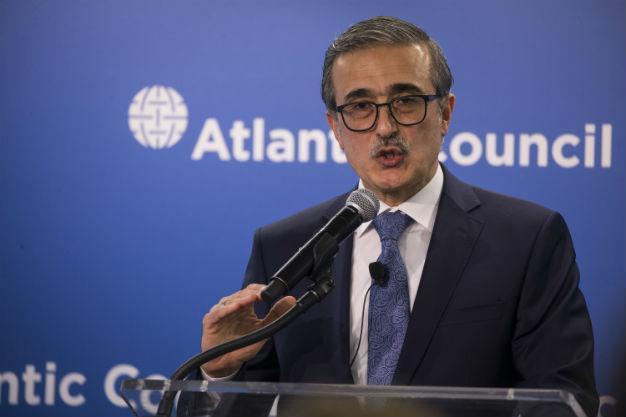Turkey no longer interested in buying US drones: Turkish official
WASHINGTON – Anadolu Agency

AA photo
A U.S. restriction on the sale of some weapon systems has driven Turkey to develop its own technologies, the head of Turkish defense industry said on May 26.“I don’t want to be sarcastic but I would like to thank [the U.S. government] for any of the projects that was not approved by the U.S. because it forced us to develop our own systems,” according to İsmail Demir, who spoke during a panel discussion at the Atlantic Council think tank.
While Turkey fights the outlawed Kurdistan Workers’ Party (PKK) as well as Islamic State of Iraq and the Levant (ISIL) targets, the American Congress has dragged its feet on approving the sale of armed drones and guided ammunitions to its NATO ally, citing concerns about the Turkish army’s fight against terrorism in southeastern Turkey and northern Iraq.
Turkey has developed tactical unmanned armed aircraft that are now operational in the fight against terrorist groups, Demir said, noting that Ankara will no longer need U.S. drones.
“Unfortunately in the case of armed drones, on our part, we have closed that page,” he said.
He added that Turkey has developed its own guided ammunitions and is developing more.
Blocking arm sales to Turkey would not set back Ankara from its national security goals, according to Demir, who cautioned the U.S. that the restriction would not be productive for long-term strategic relations between the two allies.
“In terms of defense technologies, once we render we will develop it. It might take a longer time for us but we will have that,” he said, adding that Turkey’s goal is to become more independent in defense and technology.
Demir is in the U.S. for a meeting on the F-35 Lightning program at Luke Air Force Base in Phoenix, Arizona.
According to the Turkish undersecretary, as one of the strongest air powers in NATO, Turkey has been developing its indigenous fighter jets which are planned to be made operational by 2020.
He said as Turkey engages in international joint defense technology projects, it has learned a lot that will help its own program.
Noting the challenges that the F-35 project, a joint venture with nine U.S. allies that has been criticized particularly by Congress for running over budget and schedule, Demir said Turkey is “ambitious, optimistic” but also “well aware of the risks” related to the technological acquisition as well as financial challenges to produce its own aircraft.
“We will go very carefully,” he said. “We know the experiences about the budget, and time.”
He added that Turkey has been looking at involving tech companies as partners in the fighter project but underlined that Ankara does not “want to end up with some redlines” that would limit use, development or change of the original designed technologies as well as other limits on the marketing of the aircraft.
He also encouraged multinational companies to invest in Turkey, jointly with the Turkish defense industry, to minimize risks.
















